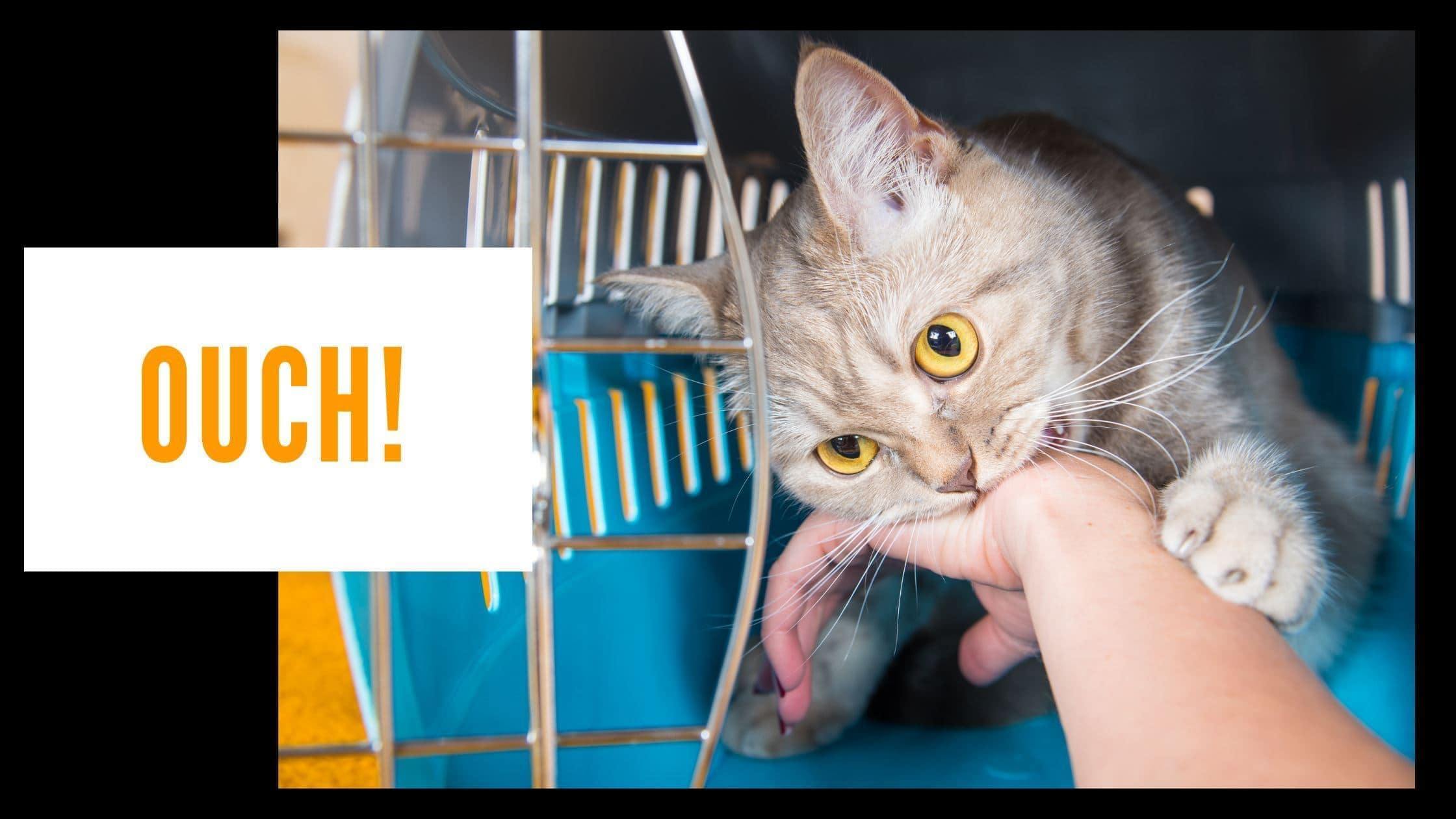It's not unusual for cats to bite. There are various reasons to explain why a cat may suddenly start attacking, even though unprovoked. Us cat owners need to know that cat biting isn't always done out of aggression.
Cats are predators by nature, and as such, seemingly aggressive actions such as biting, pouncing, and clawing make up a considerable part of their play. Allowing and reinforcing these natural impulses is important for felines, but there is a fine line between game and tolerating hostile behavior.
Read on to know why felines bite to see what can be done to stop unnecessary biting.

Why do cats bite?
There can be several reasons why our cats may bite, and it is imperative to have an idea of what your cat is attempting to tell you by biting. They may be trying to send out a message or telling you to stop doing something.
The process of figuring out why pet cats bite can be tricky; most often, when our cats bite us, it means that they don't enjoy the physical contact that they are currently receiving. There is an excellent line between delightful handling and irritating stroking for felines, so while us owners might think a bite has no reason whatsoever, it's wholly justified.
Unexpected cat attacks when petting
Among one of the most common grievances from pet cat owners is the sudden change in behavior that can happen during petting: one secondly, your cat might be enjoying the attention, the next they've gone completely berserk!
It's hard to tell when a pet cat has had enough of brushing, but finding out the meaning of your cat's body language will assist you in understanding when a bite could be on your way. Your cat is trying to communicate that they have had enough. You lower the likelihood that they will bite once more if you respect the cues, letting your cat be, instead of insisting that they show affection.
Cat attacking when playing
Pet cats usually bite throughout play since they are sharing their all-natural hunting impulse. You can inhibit the behavior by commending them for a gentle play during bonding sessions. Whenever your feline engages in-game, that uses their paws, but not their claws or teeth, award them with treats and affections.
You can also help them exercise this natural impulse by giving them toys that they can bite and claw all they want without triggering actual physical injury. When your feline uses the right toys to bite and claw at, emphasize that they have been right by showing them affection and a treat. This can be among the most efficient methods to pull out a cat from biting in other circumstances, mostly when constant about the message throughout play sessions.
Hostile biting
Although cat bites will undoubtedly be a cautionary nip or an over-excited play, it can sometimes express hostility. Biting during the game is relatively easy to distinguish from hostile behavior: these little nips won't trigger much damage and are over rapidly. Aggressive cat biting is accompanied by other indications that your feline remains in a fighting stance, whether directed in an individual or another animal.
It is crucial to stop your cat from biting out of hostility. Your cat needs to learn that this sort of practice isn't acceptable and can only be used to communicate worry or stress. Even when you train a cat to quit biting, all animals can occasionally fail to remember the lesson and act out of instinct. Continually reinforce acceptable practices with treats, avoiding physical discipline: they will not understand the message this way.
Aggressive attacking will are frequently accompanied by hissing, spitting, and a defensive, curved stance. Remember the instances where they become hostile and don't repeat them. This behavior is more prominently seen in outside cats that come across territorial conflicts or felines with a background of abuse and are frightened easily.
Kitten attacking phase
Don't be worried when your kitten begins biting and attacking other pets and you. For all felines, the act of play fighting comprises a substantial amount of their game. They establish these tendencies as an all-natural reaction: practicing for the day when they will need to search out their target, although, for domestic kitties, that day will likely never come!
Although this is a natural reaction that needs to be urged in young kittens, never give the impression that it is OK to attack human fingers and toes. Offer them with plenty of toys to practice on and compensate them for doing so. Educating cats from very early in their life that biting is bad behavior remains the most effective way to train them to stop biting.





















